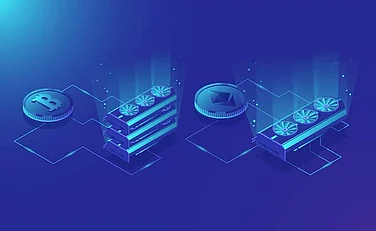Token approvals, also referred to as token allowances, form a bedrock mechanism in DeFi and crypto. They permit smart contracts to interact with user-held assets in a permissioned manner. While necessary for decentralized exchanges, lending protocols, derivatives platforms, and yield-generating applications, these approvals simultaneously introduce a structural vulnerability. Most DeFi exploits affect only part of the users who have outstanding approvals granted to the contract that has been compromised.
This article will explain how token approvals work, why they last forever, what "infinite approval" really is, and how these attributes create very specific exploit conditions. The discussion will be based on principles of protocol design, smart contract mechanics, and commonly observed patterns in security incidents across decentralized financial systems.
The Concept of Token Approvals
Token approvals are derived from the ERC-20 token standard, which is utilized throughout Ethereum and EVM-compatible chains.
In this model, smart contract-initiated token transfers must explicitly get the permission of the owner of that token.
Functional Basis
The approval system is based on three main functions:
approve() — Approves a specified contract, referred to as the “spender,” to transfer an amount of tokens.
allowance() — checks the remaining allowed amount.
transferFrom() — allows the spender to execute token transfers on behalf of the user.
These constitute a kind of gatekeeping mechanism. A smart contract does not have any inherent authority to move user assets; it is bound by the extent to which the user has given prior approvals.
Persistence of Approvals
An approval, once granted, remains on-chain until it is explicitly revoked or overridden.
It does not expire and no additional user interaction is required for its continued validity.
This persistence is key to understanding why only some users become exposed during an exploit.
Selective Vulnerability
DeFi hacks often include the unauthorized use of transferFrom().
However, this function can only be successful provided the user has granted the exploited contract this required allowance in advance.
Thus, the impact of the exploit is intrinsically tied to the prior approval state.
Permission-Based Constraints
Smart contracts are bound by deterministic logic.
They cannot transfer ERC-20 tokens from a user unless:
The user has granted an allowance to that particular contract.
The allowance amount is greater than or equal to the attempted transfer.
Only users who have outstanding approvals provide a valid route for unauthorized transfers.
Lack of access to Global Wallet
It is a common misconception that DeFi exploits compromise wallets directly. Theoretically:
Wallets aren't "hacked."
Private keys remain uncompromised.
The exploit is exploiting permissions given by the user in the past voluntarily.
It means the impact is contained to only those users who have interacted with the contract through previous approvals.
Infinite Approval as a Structural Vulnerability
It is quite common for users of DeFi to perform unlimited approval, allowing the contract to transfer any amount of a given token. This is done for convenience, since repeated approval transactions are avoided and gas expenditure is saved.
Infinite approval:
Extends the transfer authority of the contract indefinitely;
It allows for unlimited upward movement of the token price.
Increases the exposure window, sometimes spanning several years.
Theoretically, this would mean that infinite approval turns a permissioned contract into a perpetual and highly risky counterpart if its integrity is ever compromised.
Systemic Risk Characteristics
Infinite approvals lead to:
Broader exploit surfaces;
higher aggregate value at risk;
Longer periods for an attacker to exploit permissioned access.
This explains why exploits involving contracts with historical infinite approvals usually result in large-scale losses affecting long-term users.
Mechanisms Through Which Exploits Leverage Outstanding Approvals
Smart Contract Logic Compromise
Any prior approvals attached to that contract address are inherited by the attacker if a contract's logic is exploited, upgraded maliciously, or replaced in the case of proxy contracts.
Compromised Administrative Controls
Vulnerability Disclosures when compromised administrator accounts have control over upgradable contracts or access-controlled functions; attackers can start unauthorized transfers of wallets with outstanding allowances.
Front-End Exploits Leading to Malicious Approvals
A front-end compromise might make users grant allowances to malicious contracts.
Only those users who sign these approvals become exposed, while the ones that do not sign remain unaffected.
Residual Approvals from Historical Interactions
Approvals granted to obsolete, deprecated, or abandoned contracts are valid forever. In the event that such contracts are later exploited or repurposed, users with residual approvals become vulnerable.
Comparative Analysis: Limited vs. Unlimited Approvals
Parameter | Limited Approval | Unlimited / Infinite Approval |
Risk Exposure | Constrained | Unrestricted |
Duration | Until consumed or revoked | Indefinite |
Convenience | Low | High |
Gas Efficiency | Lower | Higher |
Vulnerability in Exploits | Bounded by approved amount | Potential total token drain |
Security Model for User Impact
User Segmentation
During an exploit, user impact can be classified into:
Approval-Exposed Users – users with active allowances.
Approval-Neutral Users – users who connected their wallet but never approved.
Non-Participants – users who never interacted with the contract.
Only the first group is theoretically susceptible.
Deterministic Exploit Boundaries
The exploit’s scope is determined by:
allowance values,
list of addresses that granted permissions,
contract’s historical interaction footprint.
Thus, exploit patterns are not arbitrary but mathematically bounded by on-chain approval data.
User Protection
Regular Allowance Review
Users should examine outstanding token approvals using:
blockchain explorers
approval management tools
portfolio dashboards
Revocation of Unnecessary Approvals
Revoking approvals removes the contract’s authority to execute transferFrom() operations.
Avoidance of Non-Essential Infinite Approvals
Users should opt for limited approvals unless operational necessity requires otherwise.
Use of Segmented Wallet Architecture
Interacting with unknown or experimental protocols using isolated wallets limits systemic risk.
Conclusion
The selective impact of many DeFi exploits can be understood through the theoretical framework of token approval mechanics. Smart contracts can only transfer user tokens if they possess prior authorization, and this authorization persists until manually revoked. Consequently, users with outstanding approvals—particularly those involving infinite approval—form the subset of participants exposed during contract compromises.
This behavior is not accidental; it is a predictable outcome of the deterministic design principles underlying ERC-20 token interactions. Understanding this mechanism is essential for developing safe usage practices, improving protocol design, and advancing the broader security posture of decentralized financial systems.
Frequently Asked Questions
Q1. Why are only some users affected during a DeFi exploit?
Because only users with outstanding approvals have granted the contract permission to transfer tokens.
Q2. Can native blockchain assets be stolen through approvals?
No. Native assets (e.g., ETH, MATIC, BNB) do not rely on the ERC-20 approval mechanism.
Q3. Does disconnecting a wallet revoke permissions?
No. The disconnection occurs at the interface level and does not alter on-chain approval states.
Q4. Do hardware wallets prevent approval-based exploits?
Hardware wallets protect private keys but cannot prevent misuse of previously granted approvals.
Q5. Can approvals expire automatically?
Under the ERC-20 standard, approvals do not expire unless explicitly revoked.

























